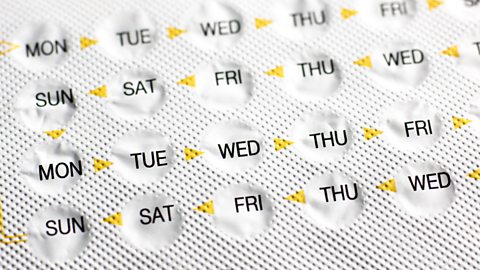Hormones and nerves
A hormoneChemical messenger produced in glands and carried by the blood to specific organs in the body. is a chemical substance, produced by a glandAn organ or tissue that makes a substance for release, such as a hormone. and carried in the bloodstream, which alters the activity of specific target organThe organ with receptor molecules on its cell surfaces which recognise a specific hormone.. An example of this is the release of the hormone adrenaline, which is released by the adrenal gland. One of its target organs is the heart, where it increases the heart rate.
Once a hormone has been used, it is destroyed by the liver.
Hormones can control the body, and the effects are much slower than the nervous system, but they last for longer.

There are important differences between nervous and hormonal control.
| Nervous | Hormonal | |
| Type of signal | Electrical (chemical at synapses) | Chemical |
| Transmission of signal | By nerve cells (neurones) | By the bloodstream |
| Effectors | Muscles or glands | Target cells in particular tissues |
| Type of response | Muscle contraction or secretion | Chemical change |
| Speed of response | Very rapid | Slower |
| Duration of response | Short (until nerve impulses stop) | Long (until hormone is broken down) |
| Type of signal | |
|---|---|
| Nervous | Electrical (chemical at synapses) |
| Hormonal | Chemical |
| Transmission of signal | |
|---|---|
| Nervous | By nerve cells (neurones) |
| Hormonal | By the bloodstream |
| Effectors | |
|---|---|
| Nervous | Muscles or glands |
| Hormonal | Target cells in particular tissues |
| Type of response | |
|---|---|
| Nervous | Muscle contraction or secretion |
| Hormonal | Chemical change |
| Speed of response | |
|---|---|
| Nervous | Very rapid |
| Hormonal | Slower |
| Duration of response | |
|---|---|
| Nervous | Short (until nerve impulses stop) |
| Hormonal | Long (until hormone is broken down) |
Master gland
The pituitary glandAn endocrine gland that is located just below the centre of the brain. It releases a number of important hormones. in the brain is known as a 'master gland'. It secretes several hormones into the blood in response to the body's condition, such as blood water levels. These hormones can also act on other glands to stimulate the release of different types of hormones and bring about effects.
Different hormones
The body produces a range of different chemical hormones that travel in the bloodstream and affect a number of different organs or cells in the body. The diagram below shows this in detail.
Important hormones released into the bloodstream include ADH (anti-diuretic hormone), adrenaline and insulin.
| Source | Organ(s) | Role | Effects | |
| ADH | Pituitary gland | Kidneys | Controlling the water content of the blood | Increases reabsorption of water by the collecting ducts |
| Adrenaline | Adrenal glands | Several targets including the respiratory and circulatory systems | Preparation for 'fight or flight' | Increases breathing rate, heart rate, flow of blood to muscles, conversion of glycogen to glucose |
| Insulin | Pancreas | Liver | Controlling blood glucose levels | Increases conversion of glucose into glycogen for storage |
| ADH | |
|---|---|
| Source | Pituitary gland |
| Organ(s) | Kidneys |
| Role | Controlling the water content of the blood |
| Effects | Increases reabsorption of water by the collecting ducts |
| Adrenaline | |
|---|---|
| Source | Adrenal glands |
| Organ(s) | Several targets including the respiratory and circulatory systems |
| Role | Preparation for 'fight or flight' |
| Effects | Increases breathing rate, heart rate, flow of blood to muscles, conversion of glycogen to glucose |
| Insulin | |
|---|---|
| Source | Pancreas |
| Organ(s) | Liver |
| Role | Controlling blood glucose levels |
| Effects | Increases conversion of glucose into glycogen for storage |